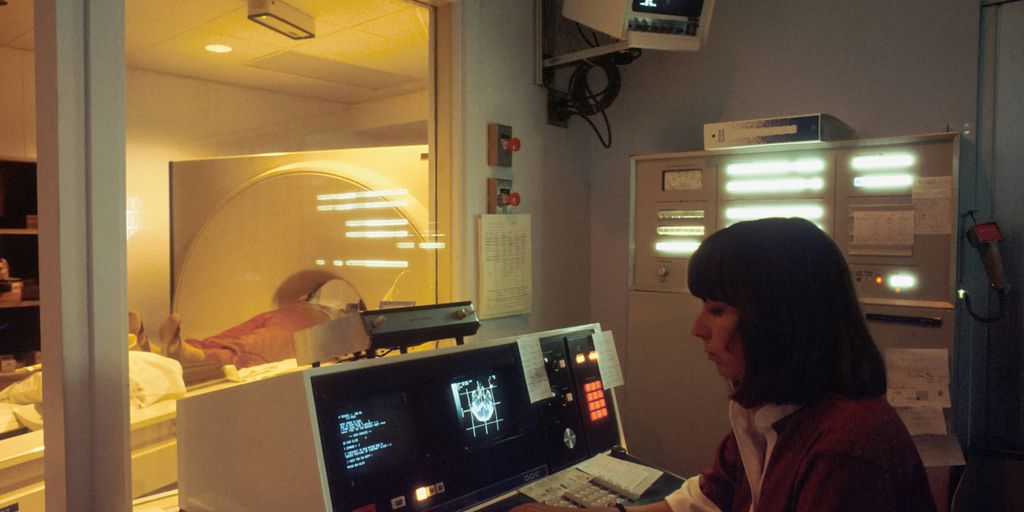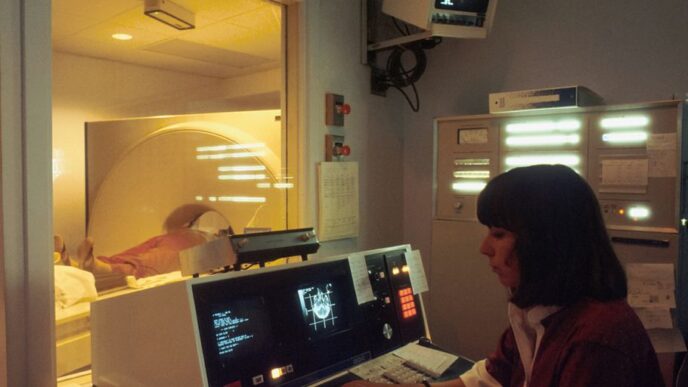The healthcare world is changing fast, and tools like Microsoft Copilot are stepping in to help. It’s all about making things better for patients and for the people who work in healthcare. Think of it as a smart assistant that can handle a lot of the busy work, so doctors and nurses can focus more on what really matters: taking care of people. We’re seeing how this technology can help with everything from figuring out what’s wrong with someone to making sure a hospital runs smoothly. It’s a big shift, and it’s happening now.
Key Takeaways
- Microsoft Copilot healthcare tools can help doctors diagnose problems more accurately and create treatment plans that fit each person better.
- The technology can also speed up office tasks, making hospitals and clinics run more efficiently and helping to plan staff schedules.
- Companies like EPC Group are helping healthcare places adopt these new AI tools, offering their knowledge and support.
- It’s important to think about how patient information is kept safe and private when using AI, and to make sure the AI is fair to everyone.
- Real-world use, like at Teladoc Health, shows that Microsoft Copilot healthcare can save a lot of time and make work better for employees.
Transforming Patient Care with Microsoft Copilot Healthcare
It feels like just yesterday we were talking about how computers could help doctors, and now, here we are with AI actually changing how patients are treated. It’s pretty wild. Microsoft Copilot is stepping into this space, aiming to make things better for everyone involved, from the folks in the clinic to the people getting care.
Enhancing Diagnostic Accuracy Through AI
You know, sometimes getting the right diagnosis can be tough. Doctors deal with so much information, and it’s easy for something to get missed, especially with rare conditions or when things are just starting. AI, and specifically tools like Copilot, can look at all sorts of data – like scans, lab results, and patient histories – way faster than any person could. It’s like giving doctors a super-powered assistant that spots things they might not see. For example, imagine an AI that can look at an X-ray and flag a tiny spot that could be an early sign of trouble, something that might be overlooked in a busy day. This isn’t about replacing doctors, but about giving them better information to make the best calls.
Personalizing Treatment Plans for Better Outcomes
We’re moving away from one-size-fits-all treatments. Everyone’s body is different, and what works for one person might not work for another. AI can help tailor treatments to each individual. Copilot can sift through a patient’s entire medical background, including genetics if available, to suggest treatment paths that are more likely to work. Think about managing a long-term illness like diabetes. Copilot could look at daily glucose readings and suggest adjustments to diet or medication in real-time. This kind of personalized approach means patients stick to their plans better and, hopefully, get healthier faster.
Predictive Analytics for Proactive Health Interventions
This is where things get really interesting. Instead of just reacting to sickness, AI can help us predict who might get sick. By looking at patterns in patient data, Copilot can flag individuals who are at a higher risk for certain conditions, like heart problems or infections. This means doctors can step in before a serious issue develops. It’s about being proactive. For instance, if an AI notices certain markers in a patient’s records that often lead to a hospital readmission, the care team can reach out with extra support or check-ups. This could save lives and also cut down on how many people end up back in the hospital, which is good for patients and the healthcare system alike.
Streamlining Healthcare Operations with AI
Healthcare operations can feel like a tangled mess sometimes, right? Lots of paperwork, scheduling headaches, and just general busywork that pulls people away from what really matters – patient care. That’s where AI, and specifically Microsoft Copilot, is starting to make a real difference. It’s not about replacing people, but about making their jobs a whole lot easier.
Automating Administrative Tasks for Increased Efficiency
Think about all the time spent on things like patient scheduling, managing medical records, or even processing billing. These are necessary, but they can be really time-consuming and, let’s be honest, a bit dull. Copilot can step in here and take over a lot of that repetitive work. It can help sort through patient data, manage appointments, and even assist with billing inquiries. This frees up staff to focus on more complex tasks and direct patient interaction. Imagine a world where your front desk staff aren’t buried in paperwork but are actually greeting patients and making them feel welcome. That’s the kind of efficiency boost we’re talking about.
Optimizing Workforce Planning and Resource Allocation
Figuring out staffing schedules and making sure you have the right people in the right places at the right time can be a puzzle. AI can look at historical data, patient flow, and even predict future needs to help create more balanced and effective schedules. This means fewer last-minute call-outs for staff and better coverage for patients. It also helps in allocating resources, like equipment or rooms, more effectively, so nothing is sitting idle when it could be used to help someone.
Improving Meeting Productivity and Information Sharing
Meetings are a big part of healthcare, but they can also be a drain on time if not managed well. Copilot can act like a helpful assistant for meetings. It can help prepare agendas, take notes automatically, summarize key discussion points, and even identify action items. This means everyone can stay on the same page without someone having to spend hours typing up minutes afterward. It makes meetings more focused and productive, and the information shared is more accessible to everyone who needs it, when they need it.
The Role of EPC Group in Microsoft Copilot Healthcare Adoption

When you’re looking to bring something as powerful as Microsoft Copilot into a healthcare setting, you don’t just want to plug it in and hope for the best. That’s where partners like EPC Group come in. They’ve been working with healthcare outfits for ages, almost thirty years now, helping them figure out how to use Microsoft tech, especially AI. They really know their stuff when it comes to the healthcare world and AI’s place in it.
Proven Expertise in Healthcare AI Implementation
EPC Group isn’t new to this. They’ve actually put AI solutions into some of the biggest healthcare places in the US. Think hospitals, clinics, even research places. They get the unique hurdles and chances that AI brings to healthcare. Their goal is to make sure you can actually use these tools to help patients and run things smoother. They’ve got a solid history of getting these complex projects done right.
Tailored AI Solutions for Healthcare Providers
No two hospitals or clinics are exactly alike, right? EPC Group understands that. They don’t just push a one-size-fits-all approach. Instead, they sit down with you, look at what you’re already doing, and figure out how Copilot can best fit your specific needs. This means looking at your current systems and planning out how AI can make patient care better and operations more efficient, all while keeping rules and regulations in mind. It’s about making the AI work for your organization.
Comprehensive Implementation and Ongoing Support
Getting Copilot set up is just the start. EPC Group handles the whole process, from the initial planning stages all the way through to getting it running and then sticking around to help. They help make sure it fits right into how your staff already works. Plus, they provide support afterward, so you can keep tweaking and improving how you use the AI as your needs change. This kind of support is key to staying ahead in healthcare today. You can find out more about their work with Microsoft Teams, which is a big part of workplace collaboration here.
Ethical Considerations for Microsoft Copilot in Healthcare
Bringing AI like Microsoft Copilot into healthcare is a big step, and it comes with some serious things we need to think about. It’s not just about the cool tech; it’s about making sure we’re doing right by patients and keeping everything safe and fair. We’ve got to be careful.
Ensuring Data Privacy and Security
Think about all the personal health information that gets handled. It’s a lot, and it’s super sensitive. We need to make sure that data is locked down tight. Microsoft Copilot has features to help with this, like encryption, but it’s not just on Microsoft. Healthcare places need their own rules and ways of doing things to keep patient info safe and follow the law. It’s like having a super secure vault, but you also need to make sure only the right people have the keys and know how to use them.
Addressing Bias in AI Algorithms
AI learns from the data we give it. If that data has old biases baked in, the AI will just repeat them, which could lead to some patients getting different or worse care. We have to check these AI systems regularly. We need to train them on data that actually represents everyone, not just a small group. It’s about making sure the AI doesn’t accidentally discriminate.
Maintaining Accountability and Transparency in AI Use
When AI helps make decisions, someone needs to be responsible if something goes wrong. It’s important that Copilot is seen as a helper for doctors and nurses, not a replacement for their judgment. People should know when AI is being used in their care and how it’s helping. Being open about it builds trust. It’s like a co-pilot in a plane – the human pilot is still in charge.
The Importance of Informed Consent with AI Tools
Patients have a right to know what’s happening with their health. If AI is part of their treatment, they need to be told. This means explaining what the AI does, what good it can do, and what the risks might be. It’s about giving people the full picture so they can agree to the care they receive. You wouldn’t want a doctor to use a new tool on you without explaining it first, right? Same idea here.
Real-World Impact: Teladoc Health’s Experience with Copilot
Teladoc Health, a big name in telehealth for over twenty years, has really seen some changes with Microsoft Copilot. Before Copilot, things were a bit scattered, especially between their client product teams and the actual operations side of things. This made it tough to get everything working together smoothly and meet promises made to clients. Eddie Swafford, who works in operations at Teladoc, mentioned that if they couldn’t keep up with what they told clients, it made it harder to be the good partner they wanted to be.
Significant Time Savings and Operational Efficiency
Copilot has been a real help in making things run better. It’s like having a personal assistant that’s always on. Swafford pointed out that Copilot saves them thousands of hours across the whole company just by cutting out everyday tasks. This really speeds things up. For instance, team members are saving up to five hours each week. That adds up to a lot of saved time over a year, which is pretty big for a company with over 6,000 people. It’s making operations smoother everywhere.
Revolutionizing Client Experience and Service Delivery
It’s not just about internal stuff, though. Copilot is also changing how Teladoc works with its clients. Heather Underhill, who is in charge of client experience and operations, said that Copilot is a game-changer for how they interact with customers. The productivity boost they’ve seen is pretty amazing. It helps them get their processes in sync and cut down on wasted effort, which is good for their bottom line. This means they can get things done faster and more accurately, making clients happier. Underhill also mentioned that Copilot helps summarize complicated technical answers into summaries that clients can easily understand. This is a big win for client services, as it cuts down the time it takes to sort out issues. They expect to cut ticket resolution time from four days down to just a few hours once everything is fully set up.
Future Potential for AI in Healthcare Documentation
Teladoc isn’t stopping here. They’re looking at how AI tools like Copilot can do even more to change healthcare. Swafford is particularly interested in using Copilot for things like transcribing data, which could really help with healthcare paperwork. He thinks Copilot could be a huge help for doctors, cutting down the time they spend on notes so they can spend more time with patients. It’s not just about saving time, either. Underhill believes Copilot can help attract and keep employees by showing them the company values their time and wants to make their jobs easier. It seems like Copilot is becoming a key part of how they get things done every day.
Leveraging Generative AI for Healthcare Advancement
Healthcare is facing some big hurdles right now, like not having enough staff and costs going up. Doctors and nurses are really feeling the pressure, working long hours and getting burned out. It’s a tough situation. Generative AI, like what Microsoft Copilot offers, can really help ease some of that burden. It can take over a lot of the paperwork and data analysis, freeing up medical pros to focus on what they do best – caring for patients.
Addressing Workforce Shortages and Burnout
Think about all the time spent on scheduling, filling out forms, and updating patient records. These are necessary tasks, but they take away from direct patient interaction. Generative AI can automate many of these administrative duties. For example, Copilot can help draft patient communications, summarize medical notes, or even assist with appointment scheduling. This means less time spent at a desk and more time at the bedside. It’s not about replacing people, but about giving them tools to manage their workload better and reduce stress.
Building Safer Healthcare Agents with Specialized AI
When you’re dealing with health information, accuracy and safety are super important. Microsoft is putting a lot of effort into making sure the AI tools built for healthcare are reliable. They’re making special safeguards available, like tools that check for made-up information or missing details in AI responses. There are also features that help the AI understand medical terms better and even check if the medical codes it uses are correct and relevant. This specialized approach is key to building trust and making sure these AI agents are genuinely helpful and safe for both patients and clinicians.
Utilizing Healthcare-Specific Features and Templates
What’s really neat is that Microsoft Copilot for Healthcare comes with built-in features designed just for this industry. You can use templates and pre-built use cases that are already tailored for healthcare needs. This means you don’t have to start from scratch. Whether it’s for patient triaging, helping people find clinical trials, or managing appointments, there are ready-made solutions. Plus, you can add on other tools, called plugins, to make these agents even more useful, no matter where those plugins came from. It’s all about making it easier to create AI tools that fit right into how healthcare organizations already work.
Looking Ahead
So, what does all this mean for the future of healthcare? It’s pretty clear that tools like Microsoft Copilot are set to change how things are done. We’re talking about making things more efficient, helping doctors and nurses spend less time on paperwork and more time with patients, and even finding new ways to spot illnesses early. It’s not just about new technology; it’s about making real improvements in how we care for people. While there are definitely things to watch out for, like making sure data stays safe and that the AI is fair, the potential benefits are huge. It feels like we’re just scratching the surface of what’s possible when we combine human expertise with smart AI tools.
Frequently Asked Questions
What is Microsoft Copilot for Healthcare?
Microsoft Copilot for Healthcare is a tool that uses smart computer programs (AI) to help doctors and nurses do their jobs better. It can help them figure out what’s wrong with patients more accurately, create special plans for each person’s treatment, and even guess what health problems might happen next so they can stop them before they start.
How does Copilot make hospital work easier?
Copilot can help by taking care of boring, repetitive tasks like scheduling appointments or filling out paperwork. This frees up doctors and nurses to spend more time with patients. It can also help manage staff schedules and make sure hospitals have the right supplies when they need them.
Is my health information safe when using Copilot?
Yes, it’s very important to keep patient information safe. Copilot is built with strong security features. However, hospitals also need to have their own rules to make sure all patient data is handled carefully and kept private, following rules like HIPAA.
Can AI in healthcare be biased?
AI can sometimes be unfair if the information it learns from is not balanced. For example, if an AI is mostly trained on data from one group of people, it might not work as well for others. It’s important to check that AI tools are fair to everyone and don’t make unfair decisions about patient care.
How has Teladoc Health used Copilot?
Teladoc Health, a company that provides virtual healthcare, found that Copilot saved their employees a lot of time, up to five hours each week! This means they can help more people and do their jobs better. Teladoc is also looking into using Copilot to help doctors spend less time writing notes and more time with patients.
How can AI help with doctor shortages and make healthcare safer?
AI can help with the shortage of healthcare workers by taking over some tasks. It can also help make healthcare safer by using special AI programs designed just for health needs. Think of it like having smart helpers that know a lot about medicine and can follow strict health rules.














